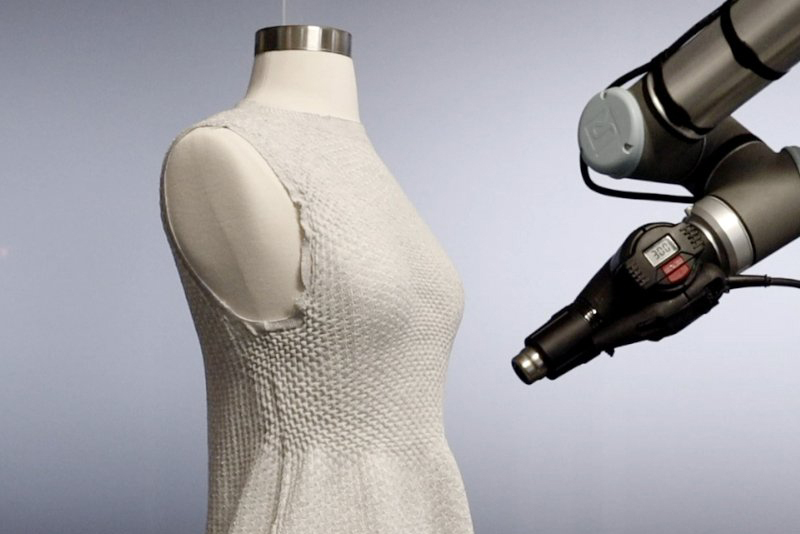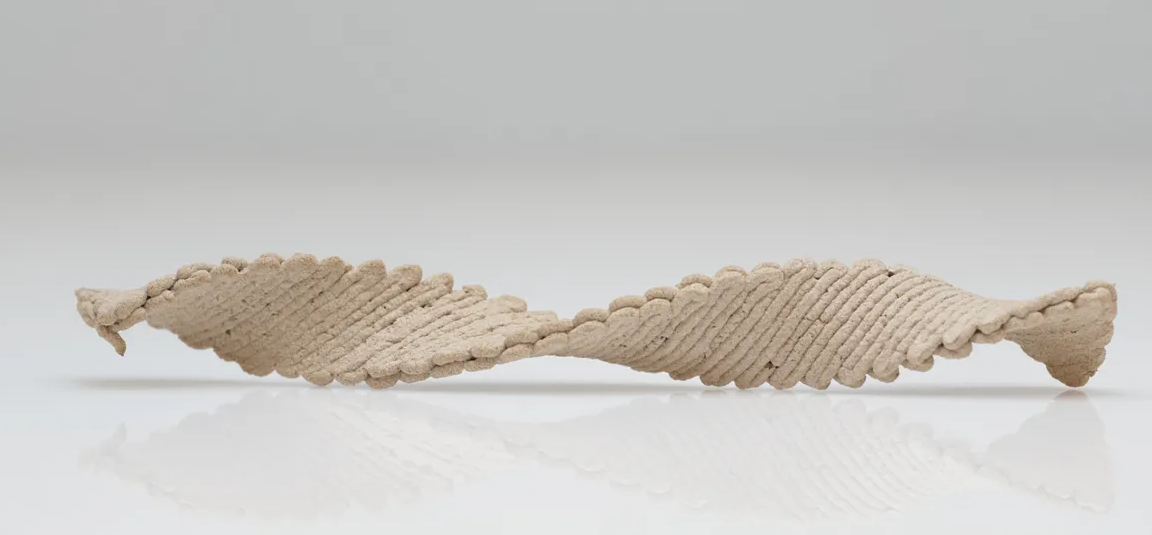Bespoke tailoring was once the only way to get perfectly fitting clothes, but the expense associated with bespoke tailoring made it inaccessible for many.
Now, envision a dress that not only fits flawlessly but also adapts seamlessly to your evolving style, body, and the latest trends. This futuristic concept is now a reality, courtesy of a groundbreaking partnership between MIT textile pioneers and a progressive fashion label.
MIT’s Self-Assembly Lab and Ministry of Supply have developed Active Textile Tailoring, a pioneering system in “smart” textiles.
This technology enables fibers to adjust their shape and structure in response to heat and moisture, revolutionizing customization in fit and aesthetics. Although the dress isn’t conventionally 3D-printed, the “4D” in its name alludes to the idea of 4D printing. In this process, the fourth dimension involves self-assembly over time during fabrication.
The 4D Knit Dress is crafted using a computer-controlled industrial knitting machine. Initially, the machine knits the entire basic dress as a single piece. It utilizes a unique active yarn that features fibers designed to shrink permanently when exposed to a specific temperature threshold.
Revolutionizing Garment Customization and Sustainability
Once purchased, the “unprocessed” dress is fitted onto a dress-form mannequin. A robotic arm, guided by the buyer’s measurements and style preferences, utilizes a custom heat gun to strategically heat the garment. This heat causes the fabric, containing the special active yarn, to shrink precisely in targeted areas, such as forming pintucks, pleats, or a cinched waist, depending on how the active yarn is distributed.
This innovative technology not only minimizes fabric wastage in the textile industry but also addresses size variations that retailers encounter when stocking inventory.







